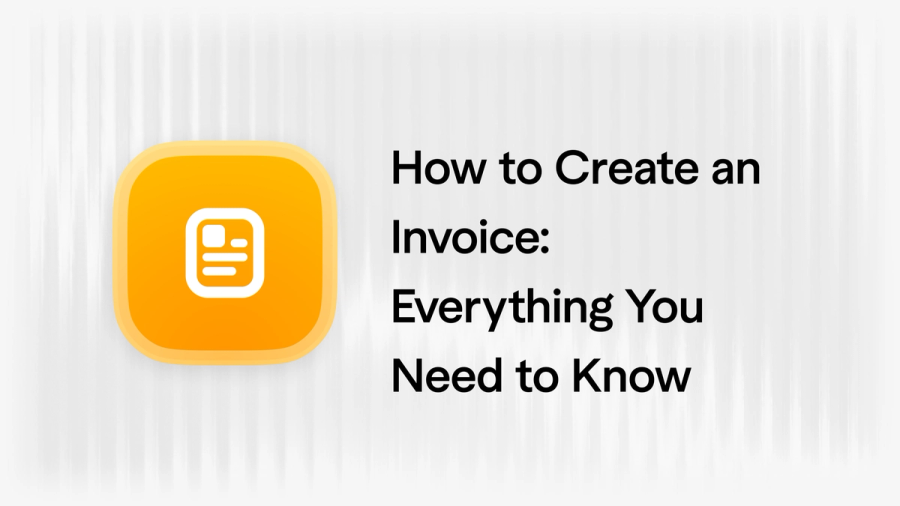One of the biggest decisions founders face when scaling their startup is choosing between hiring W-2 employees or engaging 1099 independent contractors. With 64 million Americans now freelancing and major IRS rule changes taking effect in 2026, understanding the differences has never been more important.
The right choice depends on your startup's stage, budget, and operational needs. Here's what you need to know to make the best decision, and stay compliant while doing it.
What's the Difference Between 1099 and W-2 Workers?
The IRS classifies workers into two main categories based on the nature of the working relationship:
W-2 employees work under your company's direction and control. You determine their schedules, provide their tools, and integrate them into your operations. In exchange, you're responsible for payroll taxes, benefits, and employment law compliance.
1099 independent contractors (freelancers) operate their own businesses. They control how and when they complete work, often serve multiple clients, and handle their own taxes and benefits. You pay them for deliverables, not hours.
This distinction isn't just semantic, it determines your tax obligations, legal liabilities, and total cost of labor. And getting it wrong can cost your startup significantly.
2026 Compliance Update: New 1099 Reporting Thresholds
The One Big Beautiful Bill Act (OBBBA), signed into law in July 2025, introduces significant changes to how startups report contractor payments:
Form 1099-NEC threshold increase: Starting with payments made after December 31, 2025, the reporting threshold increases from $600 to $2,000. This means you only need to file a 1099-NEC for contractors you pay $2,000 or more during the tax year.
Inflation indexing: Beginning in 2027, thresholds will adjust annually for inflation, rounded to the nearest $100.
Form 1099-K restored: The threshold returns to $20,000 AND 200+ transactions, reversing the planned reduction to $600.
| Form | Previous Threshold | 2026 Threshold |
|---|---|---|
| 1099-NEC | $600 | $2,000 |
| 1099-MISC | $600 | $2,000 |
| 1099-K | $600 | $20,000 + 200 transactions |
This change reduces paperwork for startups working with multiple contractors on smaller projects, but doesn't change the fundamental classification rules or your obligation to track all payments.
Three Signs Your Startup Should Hire 1099 Contractors
Independent contractors can be a strategic advantage for early-stage startups. Here's when they make the most sense:
You Need to Stretch Limited Runway
Hiring W-2 employees is expensive. Beyond salary, you're responsible for employer payroll taxes (7.65% for Social Security and Medicare), unemployment insurance, workers' compensation, health benefits, 401(k) matching, and equipment.
According to the Bureau of Labor Statistics, benefits now account for 29.6-30.7% of total compensation costs. That means a $100,000 salary actually costs your startup $125,000-$140,000 or more.
Working with contractors can reduce labor costs by 20-30% according to Upwork research. These are savings that extend your runway and preserve capital for growth.
You Need Specialized Expertise on Demand
Contractors bring expert skills without the onboarding overhead. They're already proficient in their craft and can deliver results immediately.
This is especially valuable for startups that need:
- A website built or redesigned
- A specific marketing campaign executed
- Financial modeling or fundraising support
- Technical development for a defined project
- Legal or compliance guidance
"I hire contractors and freelancers because they are experts in their field, can do what I need in less time than I could do it myself, and I can pay for the work I need done without an ongoing commitment," explains Dr. Marcia Layton Turner, founder of the Association of Ghostwriters.
The numbers back this up: skilled freelancers now earn a median income of $85,000, surpassing the $80,000 median for full-time employees. This reflects the premium expertise they bring.
You Have Project-Based or Fluctuating Workloads
Contractors are ideal for work that doesn't require 40 hours per week or year-round commitment. Startups with seasonal demands, project-based needs, or unpredictable growth can scale their team up or down as needed.
"It gives me the flexibility to hire experts for specific engagements rather than training employees to meet my disparate needs," shares Dr. Turner. "I may use [a contractor] for 10 hours one month and none the next, until I have another project."
Four Signs Your Startup Should Hire W-2 Employees
While contractors offer flexibility, employees provide the stability and commitment that growing startups need. Here's when W-2 hires make sense:
1. You Need Long-Term Commitment
According to the Bureau of Labor Statistics, the median employee tenure is 3.9 years. Contractors, by contrast, average just 10-13 weeks per engagement according to the American Staffing Association.
When you hire employees, you can create long-term goals with the expectation they'll be around to achieve them. You can invest in their development knowing the returns compound over time.
2. The Role Is Critical to Your Success
Contractors work best in supporting roles, not foundational ones. If your business will see significant setbacks when a particular role isn't filled, like your first engineer, head of sales, or operations lead, you should hire a full-time employee.
These workers should be fully committed not just to their responsibilities but to the mission and growth of your organization. Freelancers serving multiple clients can't offer that same dedication.
3. You Need Control Over Work Processes
Because contractors control their schedules and methods, they may not be available during business hours or able to join recurring meetings. Some work styles simply won't mesh with your operations.
Employees, by contrast, can be required to follow specific guidelines, respond to urgent requests, and integrate fully into your team's workflow. For roles requiring real-time availability or close collaboration, this matters.
4. You're Building Company Culture
Every person in your organization shapes your culture, whether they realize it or not. A team primarily composed of contractors may struggle to build shared values, relationships, and institutional knowledge.
According to LinkedIn, 40% of job seekers globally prioritize company culture when choosing a new job. If attracting top talent matters to your startup, investing in full-time employees who embody and strengthen your culture pays dividends.
The Cost of Getting Classification Wrong
Worker misclassification isn't just a paperwork issue—it's a significant financial and legal risk. The Department of Labor and IRS actively audit companies, and penalties add up quickly.
Federal penalties for unintentional misclassification include:
- 1.5% of wages for income tax withholding failures
- 40% of unpaid FICA taxes (employee portion) plus 100% of employer portion
- $50 per unfiled W-2 form
- Interest and failure-to-pay penalties up to 25%
Intentional misclassification escalates to:
- 20% of all wages paid to misclassified workers
- Criminal penalties up to $1,000 per worker
- Potential imprisonment up to one year
State penalties compound the exposure. An estimated 10-30% of employers misclassify at least one worker—don't let your startup be one of them.
The IRS uses a multi-factor test examining behavioral control, financial control, and the type of relationship. When in doubt, consult an employment attorney before classifying workers.
Quick Comparison: 1099 vs W-2 for Startups
| Factor | 1099 Contractors | W-2 Employees |
|---|---|---|
| Cost | Pay rate only (20-30% savings) | Salary + 30% benefits/taxes |
| Flexibility | Scale up/down as needed | Fixed headcount commitment |
| Control | Limited—they set their process | Full—you direct the work |
| Expertise | Specialized, on-demand skills | Develop over time with training |
| Commitment | Project-based (weeks/months) | Long-term (median 3.9 years) |
| Culture | Limited integration | Core to team identity |
| Tax forms | 1099-NEC (if paid $2,000+) | W-2 (all wages reported) |
| Compliance | Misclassification risk | Employment law compliance |
How Warp Makes Managing Both Easier
Whether you hire freelancers, employees, or both—most startups use a combination—you need a payroll system that handles the complexity without creating more work for you.
Warp automates the compliance tasks that trip up founders:
For contractors: Warp collects W-9s, tracks payments, and automatically generates and files 1099-NEC forms at year-end—including the new $2,000 threshold requirements for 2026.
For employees: Warp handles W-2 processing with all the new 2026 reporting codes required under OBBBA, including qualified tips (Code TP), overtime compensation (Code TT), and retirement account contributions (Code TA).
For multi-state teams: If you have remote workers across different states, Warp automatically registers your company with state tax agencies, calculates the correct withholdings, and files all required returns. No more logging into government portals or tracking down obscure forms.
For compliance peace of mind: Warp resolves 80% of tax notices instantly on your behalf and monitors regulatory changes so you don't have to. That includes the 19 states raising minimum wages in 2026 and the three states launching new paid family leave programs.
The result? Founders save an average of 10 hours per month and avoid roughly $50,000 in potential compliance penalties per year.
The Bottom Line
The short answer to "1099 vs W-2: which is best?" is: it depends on your startup's specific situation.
Lean toward 1099 contractors when:
- You have limited runway and need cost efficiency
- You need specialized skills for defined projects
- Your workload fluctuates or is project-based
Lean toward W-2 employees when:
- You need long-term commitment and stability
- The role is critical to your company's success
- You need full control over work processes
- You're building team culture and institutional knowledge
Many successful startups use both types of workers. Contractors for specialized, project-based work and employees for core, ongoing functions. The key is classifying each worker correctly from day one and having systems in place to manage the compliance requirements for both.
Whether you hire freelancers or employees, count on Warp to make paying them, and staying compliant, easier than ever.
Frequently Asked Questions
What is the 1099 reporting threshold for 2026? Under the One Big Beautiful Bill Act, the 1099-NEC and 1099-MISC reporting threshold increases from $600 to $2,000 for payments made after December 31, 2025.
Can I convert a 1099 contractor to a W-2 employee? Yes, but do it properly. Update their classification in your payroll system, have them complete W-4 and I-9 forms, and begin withholding payroll taxes from their first paycheck as an employee.
What happens if I misclassify a worker? You may owe back taxes, penalties (up to 40% of unpaid FICA), interest, and state-specific fines. Intentional misclassification can result in criminal penalties up to $1,000 per worker.
How do I know if someone is a contractor or employee? The IRS examines three factors: behavioral control (do you direct how they work?), financial control (do you control business aspects like payment?), and relationship type (is the relationship permanent with benefits?). When in doubt, consult an employment attorney.
Do I need to issue a 1099 for every contractor? Starting in 2026, you only need to file 1099-NEC forms for contractors paid $2,000 or more during the tax year. However, you should still track all contractor payments for your records.






